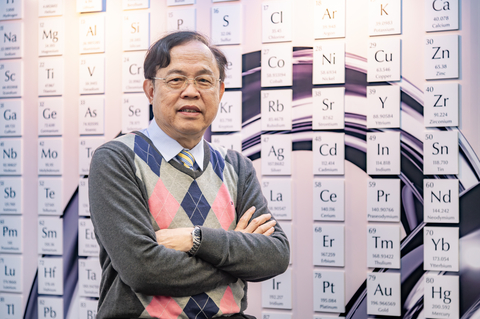Professor Jien-Wei Yeh Leads Taiwan's Scientific Influence Rankings
Professor Jien-Wei Yeh Leads Taiwan's Scientific Influence Rankings
HSINCHU, Taiwan--(BUSINESS WIRE)--Chair Professor Jien-Wei Yeh, renowned as the 'Father of High-Entropy Alloys' at National Tsing Hua University's (NTHU) Department of Materials Science and Engineering, claimed the top position in Taiwan's 2022 Scientific Impact rankings, as per Stanford University’s 'World's Top 2% Scientists' list. Globally, he stands second in the materials field and is the leader among Chinese scientists.
Yeh's work challenged the conventional belief that higher metal concentrations make alloys brittle. He demonstrated that blending five or more elements creates alloys with superior strength, lightness, ductility, and resistance to heat and corrosion.
His innovation marked a milestone in material development, offering diverse element combinations for scientific exploration and development.
Stanford University's comprehensive analysis of 9.6 million scientists worldwide, utilizing Scopus, placed Yeh in the second position for global scientific influence in the materials field in 2022. This achievement surpasses that of many leading scientists with substantial research budgets.
With 294 published papers and nearly 44,000 citations, Yeh's small-scale research team of over 20 members is mostly made up of master's students. Yeh stressed that Stanford University's evaluation prioritizes the "quality" of papers, focusing on originality and influence, setting him apart.
As a "Triple-NTHU" scholar, who completed his bachelor's, master's, and doctoral degrees at NTHU, Yeh conceived the idea of high-entropy alloys as early as 1995.
However, his new concept faced initial skepticism. Undeterred, Yeh remained steadfast, conducting step-by-step experiments and verifications and establishing the theoretical framework for high-entropy alloys.
In 2004, the ninth year of his research journey, Yeh published five papers. These papers introduced the term "high-entropy alloys," elucidated their principles, and outlined four core effects, fostering innovation in materials research and related applications.
His high-entropy alloy research has thrived, yielding over 15,000 papers with diverse applications. The developed materials showcase superior properties in mechanics, physics, chemistry, and functionality, impacting daily life, intelligent machinery, biomedicine, national defense, and space technology.
Acknowledged as the "Father of High-Entropy Alloys," Yeh received the 2021 Executive Yuan Award for Outstanding Science and Technology Contribution. In 2016, the international journal Nature conducted a special interview titled "Metal Mixology," recognizing Taiwan as the birthplace of high-entropy alloy research.
Yeh's philosophical view considers entropy as more than disorder; it symbolizes diversity, inclusiveness, fusion, and harmony. When coining the term "high-entropy," he found it more fitting than "multi-component" to describe alloys and materials.
In ancient times, bronze artifacts were crafted with added tin for strength. However, artisans from across the globe understood that adding excessive tin could lead to brittleness. Yeh challenged this notion, asserting that when multiple elements are mixed, the state of a highly disordered solid solution becomes stable, exhibiting materials with superior performance. This philosophical concept guided him to achieve breakthroughs.
"All my research started on the NTHU campus and this land of Taiwan," said Professor Yeh. Professor Yeh believes that, with ideas and perseverance, utilizing Taiwan's resources can lead to cutting-edge research that has the potential to be recognized worldwide.
Contacts
Holly Hsueh
NTHU
(886)3-5162006
hoyu@mx.nthu.edu.tw

